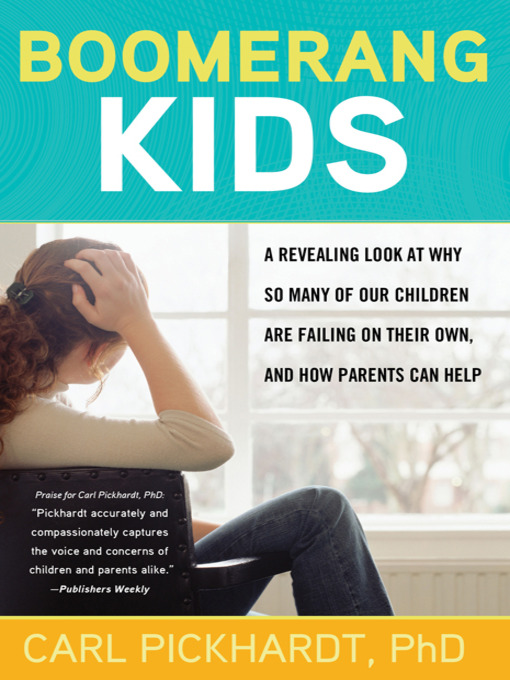"She's 22 years old, for heaven's sake! We thought she'd be grown up by now. But no, it's one more crisis after another. And then she calls on us—for emotional support, problem-solving advice. Even money...although we've gotten pretty tough about that. It's like she's still a teen! Why is it so hard for her just to act like an adult?"
Around age 18, most young people expect, and are expected to, move out and live on their own—either at college or in an apartment. But more and more often, "boomerang kids" are returning home defeated, leaving you frustrated and at a loss for how to help them.
In this breakthrough book, Carl Pickhardt, author of Why Good Kids Act Cruel, exposes the hidden period of development that's causing increasing numbers of post-high school and college age kids to fail on their own and tells parents what you can do to fix it. His new approach to understanding young adulthood proposes that 18–to–23 year-olds have reached not adulthood, but a final stage of adolescence called "trial independence."
Boomerang Kids helps parents understand this little-discussed period in your children's lives, so you can help them get through this last and most difficult stage of adolescence and get back out on their own, to become fully, and successfully, independent adults.



